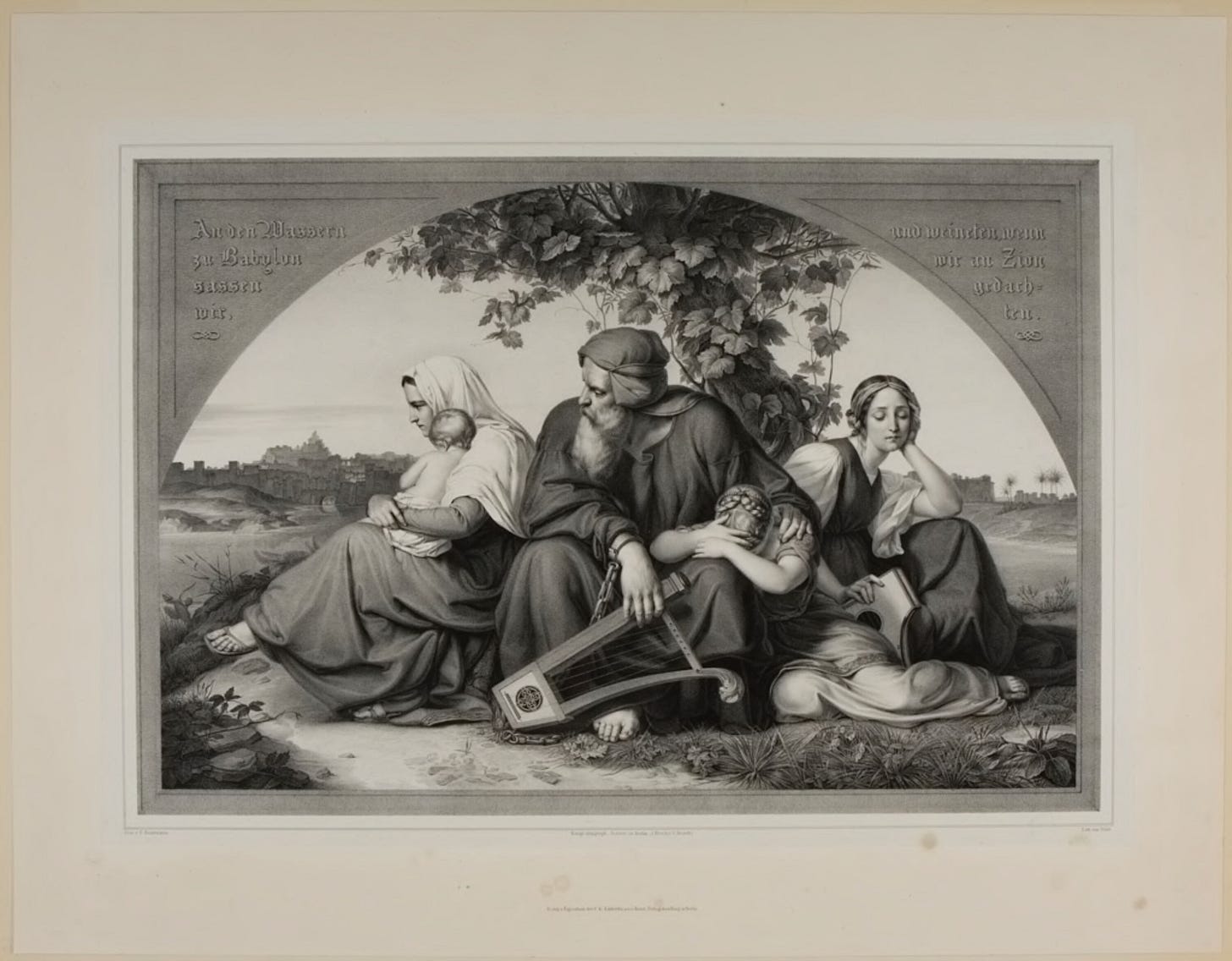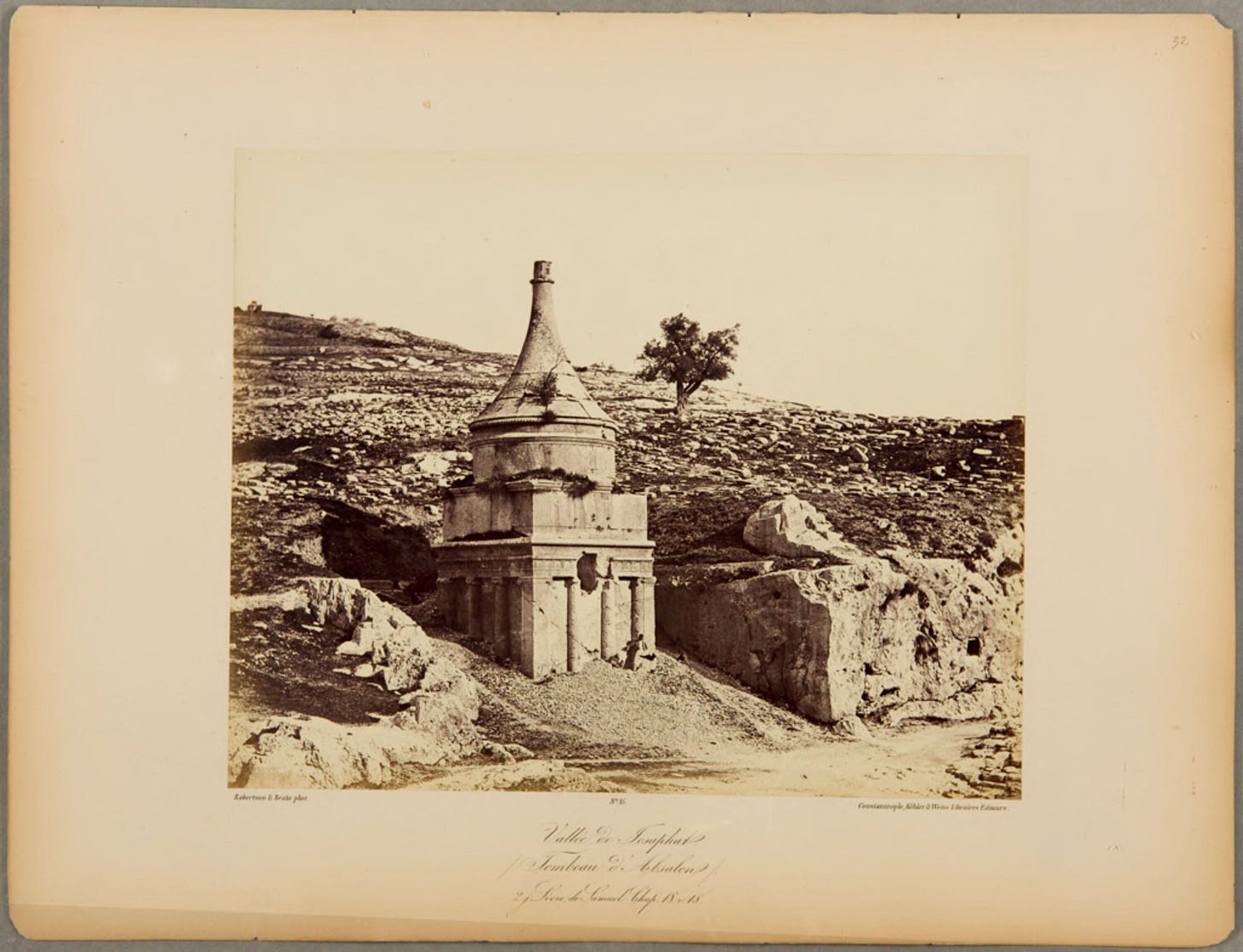The October 6 Project - Introduction
“Nothing justifies October 7, but October 7 seems to justify everything” - Ahmed Tibi, Palestinian Israeli Parliamentarian.
As the destruction of Gaza continues unabated and we begin the approach two years since the massacre on October 7, 2023, I thought it worthwhile to begin to reflect on what I am calling “October 6.” October 6 does not refer to the day itself but to what Walt Whitman, referring to the Civil War, called “the before times.” How did we get to this place? How has the Zionist project moved from an optimistic, even fantastical experiment, about freedom and self-determination (with all its caveats) into a society that has justified the occupation and denial of basic rights of another indigenous population for Jewish sovereignty to exist.
My aim is not to debate the justification or lack thereof, of policies, procedures, and programs, but to ask a series of broader questions about the trajectory of the Zionist state project from a more theoretical, one might say, programmatic direction. I find much of the discussion and debate about moving forward lacking a perspective whereby we examine how the proximate past helped create the conditions for the present catastrophe.
Such examination in not about blame (in most conflicts both sides are to blame) but more about the complex ways collectives act in history that produce a variety of alternatives, some of which lead to disastrous results. One example is the way Germany of late, and countries such as Poland as well, have engaged in deep critical reflection of its dark past, and how US policy helped create the conditions for 9/11. One of the hazards of constantly talking about “who’s to blame?” or “what is to be done?” is that everything happens very fast and often without adequate attention. I’d like to slow down the discourse, as it were, and look at all this this through a wider lens.
October 7, as we know, did not fall from the sky. It was a monstrous perfect storm of sorts where Hamas decided to attack Israel, in part to derail the impending normalization with Saudi Arabia and to evoke an international conflagration against Israel, that combined with Israel’s over- confidence that it could “manage” any attack, so much so that it re-located soldiers from the Gaza border to the West Bank, disregarded intelligence that an attack was imminent, and allowed a music rave with minimal security to take place a few kilometers from the Gaza border.
October 7 was thus a complex amalgam of a variety of countervailing (bad) decisions. If Israel was prepared, it would not have happened, something much smaller would have happened. This does not exonerate murder, rather it tries to articulate and understand this tragic moment in all its complexity. Time will tell why the IDF acted as it did, why it took seven hours to reach the Gaza envelope, but that is not my interest. My interest in this series of essays is to explore the “before times,” various critical assessments of Israel long before October 7 by Zionists and its critics, most of whom are no longer with us, to better comprehend the history of a nation.
In some way people like Walt Whitman did that for the Civil War, much has been written in the aftermath of that calamity, the history of slavery, its economics, those who protected it, justified it, and those who opposed it. This is not to compare occupation to slavery, it is rather to explore the aftermath of a tragedy by exploring the “before times” not as a nostalgic era of bygone days but as a series of moments that, when viewed in hindsight, give us a clearer picture of the present in the hope of creating a better future. I am not a political scientist, and not a political pundit. I am a scholar of Judaism. That is where my interests lie.
These essays will be posted “for everyone.” I will also invite some guest essays to broaden the conversation. I hope some will find it worthwhile to become paid subscribers to support the project.
The first installment will be posted next week, God willing/’Im Yirtz Ha-Shem/Inshallah
Thank, you,
Shaul




real excited for this, shaul, thanks as always for sharing your work + insights 🙏🏻 [also, i appreciated the “אם ירצה השם” + “ان شاء الله” combo in your sign-off : ) i find i’ve been toggling between the two expressions in daily speech as well myself.]
Its a great project and I hope you will also include Palestinian/Gazan perspectives because, arguably, there is a great deal of "mirroring" in shaping the trajectory of both societies.